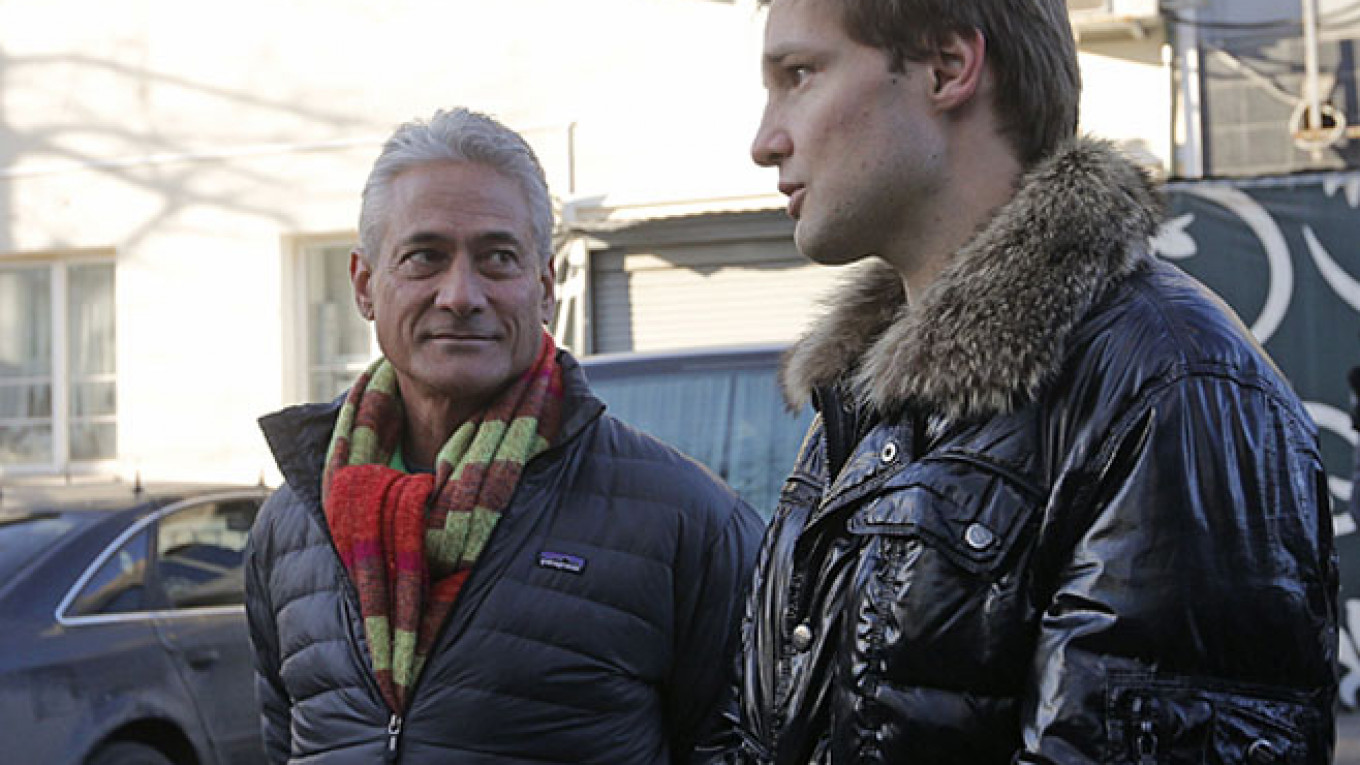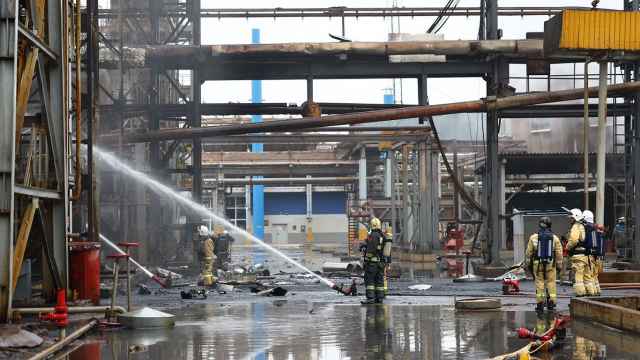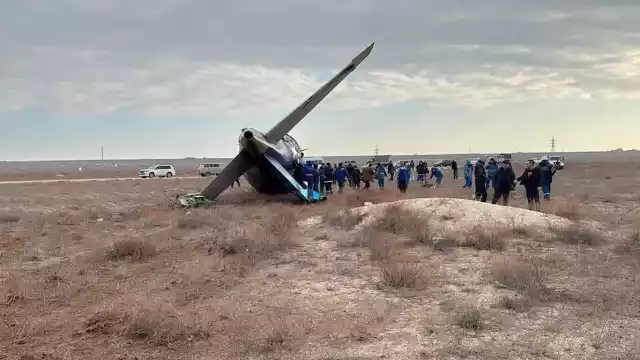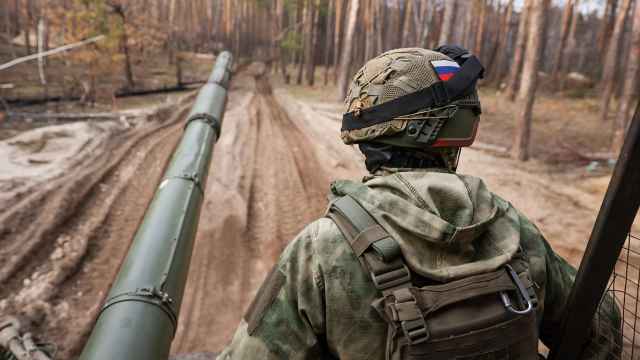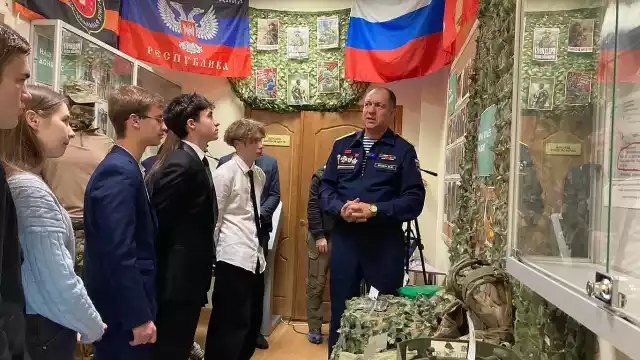Days after the closing ceremony of the Sochi Olympics, Russia's first Open Games for LGBT athletes have been jeopardized by what organizers say is a crackdown that highlights the Russian government's harsh stance on homosexuality.
Organizers of the Russian Open Games — an athletic festival fashioned after the Olympics but intended for the LGBT community — are scrambling to find alternative venues and relocate participants after authorities pressured venues and accommodation facilities into refusing to host events and house participants.
The news comes shortly after the International Olympic Committee's praise of the Sochi Olympics seemed to defuse earlier criticism of new "anti-gay" legislation signed by President Vladimir Putin in June 2013. The law banning "propaganda of nontraditional sexual relations among minors" sparked international outrage and prompted calls for an Olympic boycott in the run-up to the Sochi Games, with rights activists warning that Russia was creating a dangerous, intolerant atmosphere for gays.
But the event remained mostly free from the controversial issue, with Putin even hugging an openly gay athlete.
While some observers took this as a sign that reports of discrimination against gays were being exaggerated, the organizers of the Open Games would likely beg to differ.
"One day before the opening ceremony of the Games, almost all the venues where we had planned to hold events refused to host us for various reasons," Viktor Romanov, one of the organizers, said in a telephone interview. "I think the authorities are behind this because we can see that lots of resources are being put into trying to prevent the Open Games from taking place."
Nearly 350 Russians and 300 foreigners were registered to take part in the Russian Open Games, which run in Moscow from Feb. 26 to March 2, but the number of participants has fallen after organizers encountered logistical problems.
"Our situation is ever-changing," said Elvina Yuvakevaya, a member of the Games' Organizing Committee. "We sit down every evening to have a look at what venues will be available for the next day. Some participants have not arrived yet and some will most likely not come at all because of these problems."
According to the Organizing Committee, the venues for basketball, volleyball and swimming — events scheduled for Friday — had yet to be secured less than 24 hours before their start time.
Opening ceremony festivities, which were supposed to be held at Moscow's Boyz Club on Tuesday, were also disrupted after the club received an anonymous bomb threat.
"About 50 policemen arrived at the club," Romanov said. "They did not give us an explanation. They just told us to leave the building. We were forced to hold the news conference we had planned on the street. It was embarrassing for us and for our guests."
Among the honorary guests of the opening ceremony was former American diver Greg Louganis, a five-time Olympic medalist, who is openly gay and advocates for LGBT rights.
The organizers' predicament has also been exacerbated by the need to book new accommodations for the Games' participants after hotels refused to house them.
Two owners of a hostel in downtown Moscow, who wished to remain anonymous for fear of repercussions, said police threatened them with closure if participants of the Open Games were found in their establishment.
"Two police officers came to our hostel and told us that if any participants of the Games were found in our hostel, we would have problems," one of the owners said. "They said they would run all kinds of administrative checks on us and close us down."
The hostel owners said that none of their guests were participants in the Open Games, but had heard of incidents with participants at other accommodation facilities.
"We did not have any guests who were participating in these Games, but the hostel below us did, and they were apparently kicked out," the owner said.
When contacted on Thursday, the press service of the Moscow Police Department said that it was unaware of such incidents.
Moscow City Hall did not provide a comment in time for publication.
The organizers of the Games expressed reassurances that participants had been relocated in various hotels in the Moscow area, but conceded that last-minute rebooking has taken a toll on the spirit of the Games.
"We were trying to have all the guests stay in the same area," Romanov said.
"We wanted participants from different countries to meet. We wanted to create a positive atmosphere. But now everyone is spread out across the city."
Contact the author at g.tetraultfarber@imedia.ru
A Message from The Moscow Times:
Dear readers,
We are facing unprecedented challenges. Russia's Prosecutor General's Office has designated The Moscow Times as an "undesirable" organization, criminalizing our work and putting our staff at risk of prosecution. This follows our earlier unjust labeling as a "foreign agent."
These actions are direct attempts to silence independent journalism in Russia. The authorities claim our work "discredits the decisions of the Russian leadership." We see things differently: we strive to provide accurate, unbiased reporting on Russia.
We, the journalists of The Moscow Times, refuse to be silenced. But to continue our work, we need your help.
Your support, no matter how small, makes a world of difference. If you can, please support us monthly starting from just $2. It's quick to set up, and every contribution makes a significant impact.
By supporting The Moscow Times, you're defending open, independent journalism in the face of repression. Thank you for standing with us.
Remind me later.


